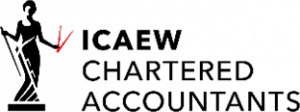Accountants are anti money laundering ‘gatekeepers’, says ICAEW
The current anti money laundering (AML) regime’s main objectives fail to capture the important role the accountancy sector plays in acting as a ‘gatekeeper’ to the financial system and preventing criminals from doing business in the UK, says ICAEW
The government’s focus on the number of Suspicious Activity Reports the accountancy sector makes misses this crucial part of the puzzle.
ICAEW is calling for measures to restrict the term ‘accountant’ so that only those accountants with a recognised qualification can call themselves an accountant, in its response to the latest AML consultation.
‘This would provide clarity that only those called an ‘accountant’ would be subject to rigorous Code of Ethics and CPD requirements. It would also be high impact to include an explicit requirement within the money laundering regulations for those individuals providing accountancy services or trust and company services to be registered with a supervisor for AML supervision,’ ICAEW said in a response to the government’s AML consultation.
ICAEW is a supervisory body recognised by the Treasury for the purposes of the Money Laundering Regulations 2017 supervising approximately 11,000 member firms.
‘We observe through our monitoring activity that ICAEW members are taking action to identify, prevent and report suspicious transactions. There are concerns among law enforcement that accountants under-report, although the evidence for this is unclear and there are limited examples of where an accountant has been prosecuted, disciplined or investigated for failing to report a suspicion,’ ICAEW said.
‘Supervisors must continue to review and inspect the activities at their supervised firms to ensure that the barriers to doing business and procedures to identify suspicious activities are well-designed and implemented consistently. However, there needs to be a better understanding of what level of supervisory activity is acceptable for each risk category, ie, is it appropriate to have very regular monitoring reviews for high-risk firms but to do a random sample of firms presenting low risk.’
ICAEW also said that Companies House must be given extended powers as part of the proposed reform. Accountants have an obligation to review information held on the Companies House register of People with Significant Control when they take on a new client and report any discrepancies, but currently Companies House does not have the necessary powers to resolve these.
‘We need a greater sharing of intelligence from law enforcement to help inform our supervisory activity and educate our members on how to identify emerging threats in economic crime. We strongly support proposals to expand the legislative gateway for information and intelligence sharing between law enforcement and the profession, but the information does not flow back to us.’

